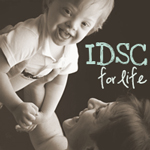Glutathione is a very important amino acid. And even more important for individuals with DS. As I say in an article on our website,
Glutathione is commonly deficient in individuals with Down Syndrome, due to the extra chromosome & overexpression of the SOD-1 gene. Glutathione is an important antioxidant. It helps scavenge free radicals, deal with oxidative stress & the pro-oxidant state of individuals with Down Syndrome.Glutathione is very difficult to absorb. We have given Reduced L-Glutathione to Osiyyah over the years, in hopes that it will be absorbed at least some to help him. And I think it has helped him, especially when he was younger and struggled with minor lung issues.
I was talking with someone on the phone the other day about Glutathione in Down syndrome. And I remember about a study I read which Dr. Jill James did that showed Methylcobalamin B12 helped increase Glutathione levels in children with Autism.
Methylcobalamin B12 is already used in DS to help with the low folic acid issues caused by the overexpression of the CBS gene and the messed up SAM cycle. We give Osiyyah MethylB12. So, by giving MeB12, we are covering a couple bases at once - folic acid problem and helping increase Glutathione levels (hopefully ;)).
Here is the abstract of the study which Jill James did. The bolded parts are the key parts.
Efficacy of methylcobalamin and folinic acid treatment on glutathione redox status in children with autism
Background: Metabolic abnormalities and targeted treatment trials have been reported for several neurobehavioral disorders but are relatively understudied in autism.
Objective: The objective of this study was to determine whether or not treatment with the metabolic precursors, methylcobalamin and folinic acid, would improve plasma concentrations of transmethylation/transsulfuration metabolites and glutathione redox status in autistic children.
Design: In an open-label trial, 40 autistic children were treated with 75 µg/kg methylcobalamin (2 times/wk) and 400 µg folinic acid (2 times/d) for 3 mo. Metabolites in the transmethylation/transsulfuration pathway were measured before and after treatment and compared with values measured in age-matched control children.
Results: The results indicated that pretreatment metabolite concentrations in autistic children were significantly different from values in the control children. The 3-mo intervention resulted in significant increases in cysteine, cysteinylglycine, and glutathione concentrations (P < 0.001). The oxidized disulfide form of glutathione was decreased and the glutathione redox ratio increased after treatment (P < 0.008). Although mean metabolite concentrations were improved significantly after intervention, they remained below those in unaffected control children.
Conclusion: The significant improvements observed in transmethylation metabolites and glutathione redox status after treatment suggest that targeted nutritional intervention with methylcobalamin and folinic acid may be of clinical benefit in some children who have autism.
























0 comments:
Post a Comment